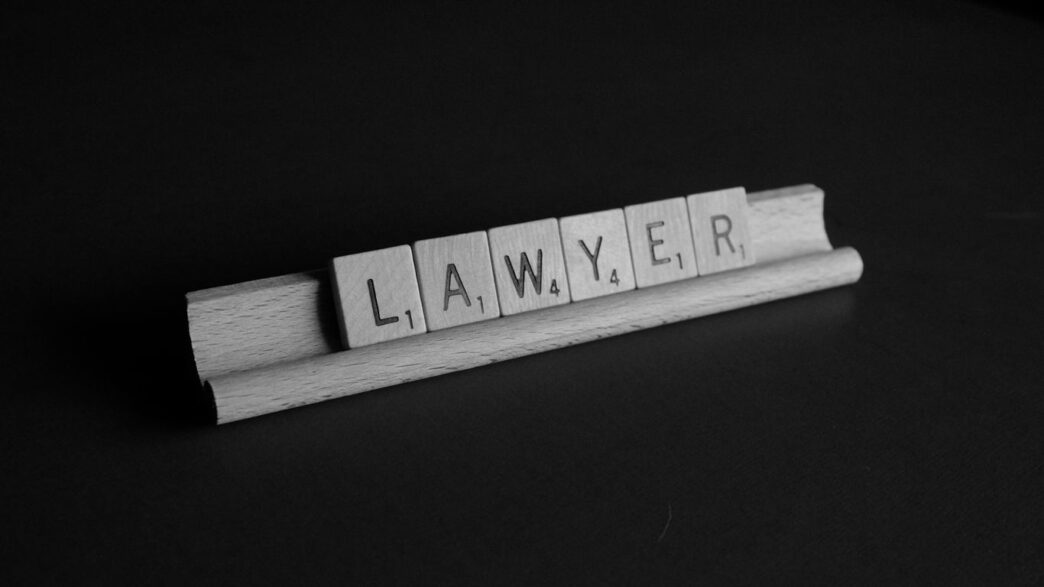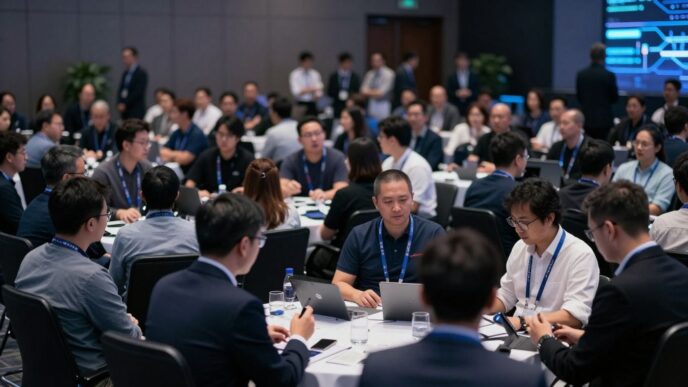So, AI is everywhere now, right? It’s doing all sorts of cool stuff, but it’s also starting to cause some headaches, legally speaking. We’re seeing more and more lawsuits pop up related to AI, and it feels like things are changing really fast. Companies are getting sued for how they talk about their AI, for using people’s work to train AI, and all sorts of other things. It’s a whole new ballgame, and figuring out how to play it can be tricky. This article is going to break down what’s happening with these lawsuits against AI and what folks need to watch out for.
Key Takeaways
- AI is leading to a big increase in lawsuits, especially in areas like securities and copyright. Basically, companies are being accused of overstating what their AI can do or using copyrighted material without permission.
- Copyright infringement claims are a major issue. Creators are suing because they say AI tools are trained on their work without them getting paid or even asked, and then the AI makes stuff that’s too similar.
- Governments and agencies are starting to figure out how to regulate AI. There aren’t many specific AI laws yet, but existing rules about data and fair practices are being applied, and more specific rules are likely coming.
- Companies need to be super careful about what they say about their AI. Being honest and clear in disclosures is key. Also, having good internal checks and balances can help prevent problems before they become lawsuits.
- The legal side of AI is still developing. We can expect more lawsuits, especially from consumers, and a bigger focus on who owns what when AI is involved. Working together to create clear rules will be important.
Understanding the Rise of Lawsuits Against AI
It feels like just yesterday AI was this futuristic thing, and now it’s everywhere, right? Especially with those generative AI tools popping up, the ones that can whip up text, images, and even music. It’s been a wild ride, and honestly, it hasn’t taken long for the legal world to catch up. We’re seeing a definite uptick in lawsuits specifically targeting AI.
The Surge in AI-Related Securities Litigation
This year, a lot of the legal trouble involving AI has been tied to specific events. Think about when big data security problems come to light, or when research reports drop that make waves, or even when regulators start asking questions. These kinds of things often trigger lawsuits, especially when companies have made promises about their AI development that they just can’t keep. Sometimes, it’s as simple as a company missing its own projections because their AI didn’t perform as expected. The market’s reaction to all this news, good or bad, has also played a big role. When stock prices take a nosedive after an AI announcement or a lawsuit filing, you can bet lawyers are looking for grounds to sue.
Generative AI and the Onset of Class Actions
When generative AI really took off, especially after late 2022, it wasn’t long before class action lawsuits started showing up. A lot of these early cases are coming from creators – artists, musicians, writers – who are saying that their work was used to train these AI tools without their permission. It’s a two-pronged issue, really. On one side, people are upset that their creations were used as training data. On the other, they’re concerned that AI can now churn out content that’s basically a copy of their original style or work. We’ve seen cases where an AI is asked to create something in the style of a specific artist, and it ends up producing something almost identical to an existing piece. It’s a messy situation, and courts are still figuring out how to handle it.
Event-Driven Litigation and Market Reactions
It’s interesting how many AI lawsuits seem to be triggered by specific events. For instance, in 2024, a lot of the securities litigation has popped up because of things like major data breaches, critical reports from outside researchers, or official inquiries from regulatory bodies. Companies that have talked up their AI capabilities and then failed to deliver, missing their own targets, have also found themselves in hot water. The stock market’s response to these AI-related developments is also a big factor. When a company’s stock price plummets after an AI disclosure or the announcement of a lawsuit, it often becomes the catalyst for more legal action. It’s a cycle where news, market performance, and legal challenges feed into each other.
Copyright Infringement Claims in AI Development

AI Training Data and Creator Rights
So, AI is getting really good at making stuff, right? Text, images, even music. But here’s the sticky part: how does it learn to do that? Mostly, it’s by looking at tons of existing data from the internet. And a lot of that data is copyrighted. Think books, photos, code – stuff people created and own. Now, lawsuits are popping up because creators are saying, ‘Hey, you used my work to train your AI without asking or paying me!’ It’s like someone learning to paint by copying every famous artwork ever made, and then selling their copies as original. This is the core of many copyright infringement claims against AI companies.
It’s not just a few artists complaining either. We’re seeing authors, photographers, and even coders filing cases. They argue that AI models are essentially digesting their creations and then spitting out new content that’s either too similar or directly benefits from the unauthorized use of their original work. The sheer volume of data AI models process makes it hard for companies to track exactly what went into training them, but that doesn’t seem to be a strong defense in court.
Content Creation and Ownership Ambiguities
This whole AI-generated content thing is a real head-scratcher when it comes to who owns what. If an AI creates a poem or a piece of art, who holds the copyright? Can a machine be an author? Right now, the law is pretty fuzzy on this. Most copyright laws are built around human creators. So, when AI starts producing creative works, it throws a wrench into the system.
This ambiguity is fueling a lot of the legal battles. On one hand, you have creators worried about their work being used without permission. On the other, you have AI developers pushing the boundaries of what’s possible. The courts are now tasked with figuring out how to apply old copyright rules to this brand-new technology. It’s a complex puzzle, and the answers aren’t going to be simple.
Legal Scrutiny of AI Chatbots and Art Platforms
We’re seeing a lot of attention on specific AI tools. For instance, popular AI chatbots that can summarize books or generate text are facing lawsuits from authors who claim their books were used for training. Similarly, AI art platforms that can create images in the style of famous artists are being sued by visual artists. Even companies that license images are getting involved, suing AI firms for scraping millions of photos for training data.
Here’s a quick look at some of the issues:
- Training Data: Was copyrighted material used without permission?
- Output Similarity: Does the AI-generated content too closely resemble existing copyrighted works?
- Attribution and Compensation: Are creators being acknowledged or compensated when their work contributes to AI capabilities?
These cases are still pretty new, and judges are trying to make sense of it all. It’s likely going to take a while for clear legal precedents to be set. The Federal Trade Commission (FTC) is also watching closely, considering whether using creator content to train AI could be an unfair business practice. They’ve pointed out that it could hurt creators’ ability to compete and even mislead consumers about who actually made a piece of content.
Navigating Regulatory Frameworks for AI
The world of artificial intelligence is moving at lightning speed, and governments are trying to keep up. It feels like every week there’s a new development, a new capability, and with that, new questions about how it should be managed. This is why understanding the evolving regulatory landscape is so important for any company working with AI.
Right now, there isn’t one single, overarching law that covers all AI. Instead, we’re seeing a patchwork of rules and guidelines emerging from different places. In the United States, for example, there’s no federal AI law yet. However, existing laws around data privacy, like the California Consumer Privacy Act (CCPA), already affect how AI systems can use personal information. The Federal Trade Commission (FTC) has also put out guidance, basically saying companies need to be fair, accountable, and transparent when they use AI. They’ve warned that using AI in deceptive or unfair ways could lead to penalties.
Several states are taking the lead. California, Colorado, and New York have introduced specific rules. California’s CCPA, for instance, now includes provisions about automated decision-making, meaning businesses might have to tell people when AI is making significant decisions about them, like for jobs or loans. Colorado has its own AI Act that focuses on transparency and avoiding bias, requiring impact assessments for high-risk AI. New York City even has rules about AI used in hiring.
Here’s a quick look at some key areas regulators are focusing on:
- Bias and Fairness: Making sure AI doesn’t discriminate. Many proposed laws require regular checks to prove AI is fair.
- Transparency: Explaining how AI makes decisions, especially when it impacts important things like jobs or credit.
- Data Privacy: Keeping the data AI uses safe and following privacy rules.
Internationally, things are also developing. The European Union is working on its AI Act, which categorizes AI systems by risk and sets strict rules for high-risk ones. Canada is also developing its own Artificial Intelligence and Data Act (AIDA) to promote trustworthy AI. Companies operating globally have to pay attention to all these different rules to avoid trouble. It’s a complex situation, and staying informed is key to avoiding legal trouble.
As AI keeps changing, so will the laws. Companies that focus on following the rules and using AI ethically aren’t just reducing their legal risks; they’re also building trust. It’s a smart move for the long run.
Key Considerations for Companies Facing AI Lawsuits
Dealing with lawsuits related to artificial intelligence can feel like trying to hit a moving target. Things change fast, and what was okay yesterday might be a problem today. So, what can companies actually do to stay ahead of the curve and avoid getting tangled up in legal battles? It really comes down to being smart and upfront about what your AI can and can’t do.
Ensuring Accurate and Transparent Disclosures
This is probably the most important part. When you’re talking about your AI, you’ve got to be honest. Don’t hype up its abilities or promise things it can’t deliver. Think about it like this: if you tell customers your AI can predict the stock market with perfect accuracy, and then it doesn’t, you’re asking for trouble. It’s better to be realistic. Companies need to make sure that all the information they put out there about their AI – whether it’s in marketing materials, investor reports, or even internal documents – is spot on. This means clearly defining what your AI does and, just as importantly, what it doesn’t. Consistency is key here; using the same definitions and descriptions across the board helps avoid claims of misleading people.
Implementing Robust Internal Controls
Beyond just what you say publicly, you need to have solid systems in place internally. This means having checks and balances to monitor how your AI is being developed and used. Regular reviews are a good idea to make sure that everything is still accurate and compliant. Think about setting up a team or a process that specifically looks at AI-related risks and disclosures. This isn’t just about avoiding lawsuits; it’s about building a responsible AI practice.
Here are a few things to focus on:
- Data Integrity: Make sure the data used to train your AI is handled properly and ethically. This can prevent issues down the line related to privacy or copyright.
- Performance Monitoring: Keep an eye on how your AI is actually performing. Are there unexpected biases creeping in? Is it making errors?
- Documentation: Keep detailed records of your AI development, testing, and deployment processes. This can be super helpful if you ever need to defend your actions.
Proactive Risk Management Strategies
Finally, you can’t just wait for problems to happen. You need to actively look for potential risks and deal with them before they become lawsuits. This involves identifying all the possible downsides of your AI. What could go wrong? Consider things like:
- Privacy Concerns: How is user data being protected?
- Intellectual Property: Are you using any copyrighted material without permission? Is your own AI IP protected?
- Security Vulnerabilities: Could your AI system be hacked or misused?
- Bias and Fairness: Is your AI treating everyone equally, or are there discriminatory outcomes?
- Transparency Issues: Can you explain how your AI makes decisions when needed?
By thinking through these potential issues and having plans in place to address them, companies can significantly reduce their chances of facing legal action. It’s about being prepared and showing that you’re taking AI seriously, not just as a technology, but as something that needs careful management.
The Future of Litigation Involving AI
So, what’s next for lawsuits involving AI? It’s a bit like trying to predict the weather, but some trends are definitely starting to show. We’re seeing a lot of movement in copyright cases, and that’s likely to keep going. Think about all the art and text AI can generate – who owns that? And what about the stuff it learned from? That’s a huge question mark.
Anticipating Consumer Class Actions
We haven’t really seen the big consumer class actions hit the AI space yet, but folks in the know expect them. These could pop up in a couple of ways. First, there are AI-based selections. Imagine an AI recommending products or services, and those recommendations aren’t quite right, or maybe they’re biased. Then there are the bad AI decisions. This could be anything from an AI making a faulty medical diagnosis to an AI in a self-driving car causing an accident. These kinds of issues could lead to a lot of people banding together to sue.
The Growing Importance of IP Competition
Intellectual property is going to be a massive battleground. As AI gets better at creating things – music, art, code, you name it – the lines between human creation and AI creation get really blurry. This is already causing headaches for creators who feel their work is being used without permission to train these AI models. We’re seeing lawsuits pop up now, and it’s only going to get more intense as AI becomes a bigger player in creative industries. Companies training AI models need to seriously think about the risks involved with using copyrighted materials. It’s not just about avoiding a lawsuit; it’s about building trust. The US Copyright Registration Office has already said AI-generated content can’t get copyright protection unless a human is heavily involved, which is a big clue about where things are headed.
The Need for Collaborative Legal Solutions
Honestly, nobody can solve this alone. AI is moving so fast that lawmakers are struggling to keep up. We need new laws that encourage AI innovation but also protect people’s rights. It’s a tough balancing act. Developers need to be upfront about potential legal issues, and creators have to stay aware of their rights. It’s not just about fighting lawsuits; it’s about creating a fair system for everyone. The legal field itself is still figuring out how AI fits in, with many professionals seeing its potential for things like legal advice, even if they’re wary of AI representing clients in court AI representing clients in court. This suggests a future where collaboration between legal experts and AI might become more common, but with clear boundaries.
What’s Next?
So, where does all this leave us? It’s pretty clear that lawsuits involving AI aren’t going away anytime soon. We’re seeing them pop up in all sorts of areas, from copyright issues to companies getting sued for hyping up their AI too much. Courts are still figuring things out, and new rules might be on the way. For anyone involved with AI, whether you’re building it, using it, or just trying to understand it, staying informed is key. It looks like we’ll all need to keep a close eye on how these legal battles play out and what new guidelines emerge. It’s a bit of a wild west right now, but things are definitely starting to take shape.
Frequently Asked Questions
What kind of lawsuits are happening because of AI?
Lots of lawsuits are popping up because of AI. Some are about companies saying their AI is better than it really is, like “AI washing.” Others are about AI using people’s art or writings without permission to learn. There are also lawsuits about AI making mistakes or causing harm.
Can AI copy someone’s art or writing?
Yes, that’s a big worry. AI learns from tons of information, and sometimes that includes copyrighted stuff like books, music, or pictures. People are suing because they say AI is using their work to create new things, and they didn’t get paid or give permission.
Who owns the art or writing made by AI?
That’s a tricky question that courts are still figuring out. Right now, if AI makes something with little human help, it might not get copyright protection. It’s like asking if a robot can be an author. It’s confusing, and laws are trying to catch up.
Are there rules for how companies use AI?
Governments are starting to make rules, but it’s all pretty new. Some places have laws about how data is used, which affects AI. Other rules are about making sure AI is fair and honest. Companies need to pay close attention to these changing rules.
What should a company do if they are sued over AI?
Companies need to be super honest about what their AI can and can’t do. They should have good systems in place to check their AI work and make sure they aren’t breaking any rules. It’s also smart to think ahead about what could go wrong and try to fix it before it becomes a big problem.
Will there be more lawsuits about AI in the future?
Most experts think so. As AI gets used more in everyday life, we’ll likely see more lawsuits from regular people who feel AI has wronged them. Also, companies will probably fight more over who owns AI technology and ideas.














